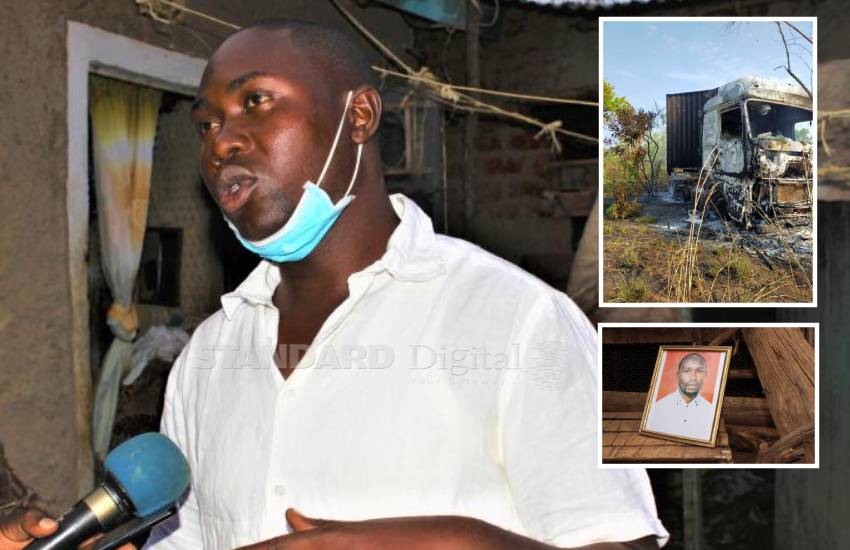×
The Standard e-Paper
Smart Minds Choose Us

Collins Chapurukha did not want to believe what he was hearing. It was April 1, a day for pranksters, but would people be that cold-hearted to lie that his childhood friend, Elijah Thiiru, had been killed by gunmen along the Juba-Nimule road in South Sudan?
After confirming from truck drivers that Thiiru had indeed been shot and his truck set ablaze by suspected militia members, Chapurukha set about planning how he would recover his friend's body before it was interred in an unmarked grave in a foreign land.